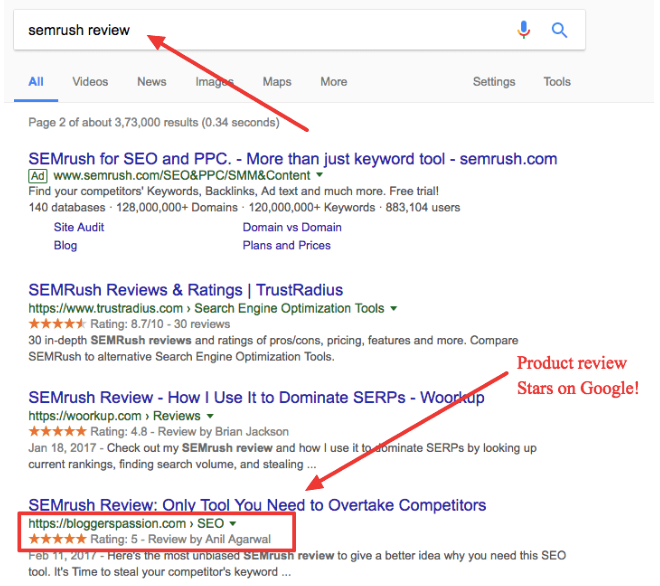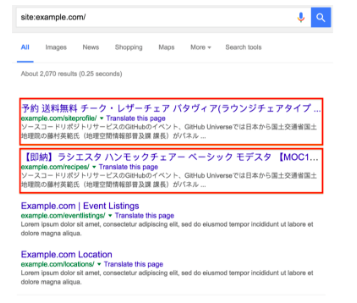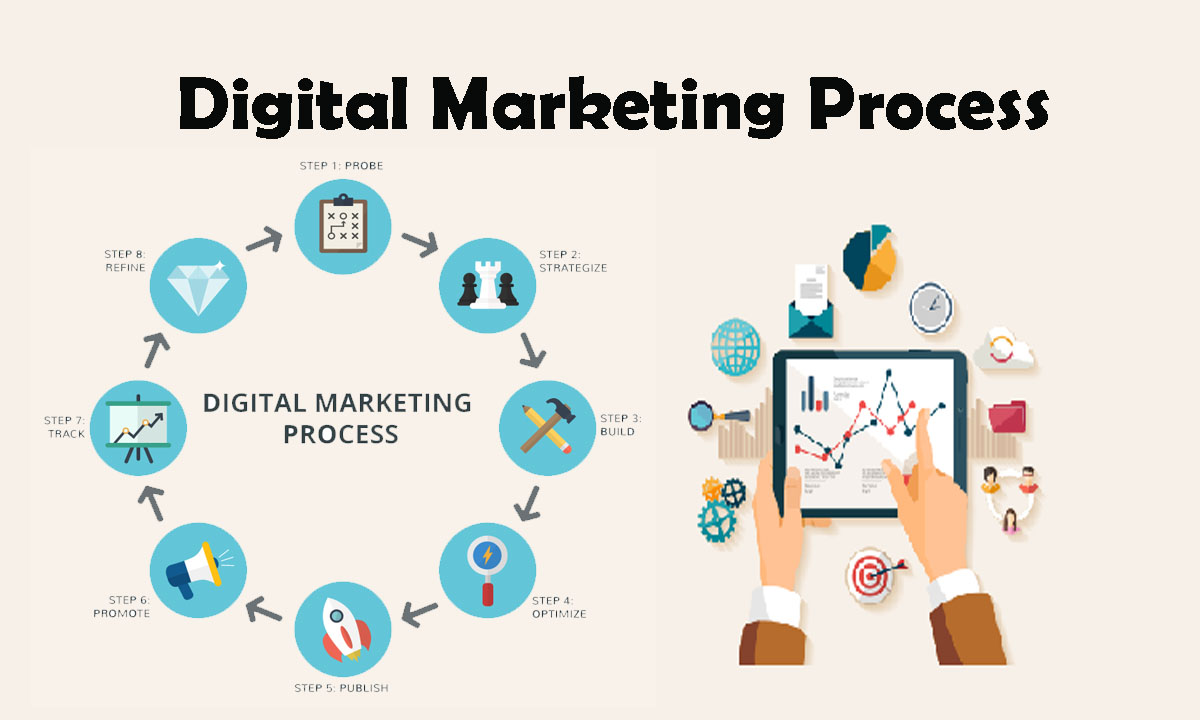Reputation Management SEO for Your Branded Keywords
What do you think is the biggest source of traffic to your website – organic search or direct visit?
It is no secret that organic search accounts for 64% of total website traffic, while only 12% directly visits your site. (Source)
So, what is the first thing that this 64 % of organic web traffic encounters you? No, it is not your landing page or website as you thought. It is how your brand appears on Search Engine Result Pages (SERPs).
And that is what the whole search engine ‘fight’ is all about – presenting the brand or search result, in a manner that induces searchers to click. If you could influence the web searcher’s organic first impression, it can go a long way in enhancing brand perception as well as increasing conversion rates.
This article takes through the challenges of building a strong organic search result impression and how to deal with it effectively.
How SERPs Affect Your Brand Reputation
You have an excellent website designed for your business. Search engine optimization techniques are in place. There are informative landing pages ready for your viewers to read and engage. Luckily, your SEO efforts managed to get you top rankings in search engine result pages.
Then why isn’t your website getting its share of click-through as you had expected? What’s wrong with your SEO strategy? Nothing! It is just that you ignored the importance of reputation management SEO.
Now, what is Reputation Management SEO, you would say. It is a proven technique of creating an impactful impression on SERPs itself. How you appear on the search engine result page can make or break your reputation on the Internet. Therefore, it is important to first build credibility on SERPs because it is the first touch point that your potential customers experience with your brand.
Search Engine Result Pages control what appears there, who is ranking, where are they ranking, what they say, how they say, and other things that have a strong impression on a customer’s perception.
Here are some examples of how search results can affect your reputation:
- Meta Title & Meta Description: What web searchers first see on a SERP is the Meta title and Meta description of each search result. If it is not catchy enough or the words are confusing or it is unable to answer their queries effectively, they would not feel inclined to click on the search result. Below is an example showing boring and great Meta titles.

(Source: Search Engine Land)
- Reviews & Ratings: This is a crucial aspect of search results that can affect your brand reputation considerably. When people search for company, product or service reviews, the search results generally display as in the below image. It highlights the rating and mentions a few words about the business, product or service. These are mostly posted by third-party sites. If the rating is poor or there appears a single negative word about your brand, customers will hardly click on the search result.
The worst part is that most reviews come from third-parties and you could hardly do anything to prevent it from affecting your reputation. Negative reviews and rating also come as competitor malpractice.

(Source: BloggersPassion)
- Japanese Keyword Hack: While this is a Google security issue, it can also affect your reputation on SERP because searchers do not have the idea that your Search Console is being hacked. Hackers adopt the technique to earn commission using affiliate links to stores that sell fake merchandise. As a result, your site will appear as below image on search engine result pages:

(Source: Google Developers)
Reputation Management Tactics for SERPs
Considering the challenges, how can we influence the Search Engine Result Page to create a positive impression for your brand? Discussed here are some proven tactics to build a strong reputation on SERP.
1) Get Backlinks from High-Authority Websites: Links have a big influence on what appears on search engine result pages. So, buckle up your shoes and get focused with link building. Connect to powerful review sites like Yelp or other authoritative websites related to your business. Redirect few links that you already have, add new links to different places or link out from your own website. You can also link to articles or blogs you contribute to.
Another good way of building a positive impact is to create links that direct to the CEO’s profile or an eminent influencer speaking about your brand. Linking to press releases that talk about your company supporting public causes, making donations or doing something great for the industry can also help build a reputation.
Remember, all the links may not necessarily go to your Home Page. Change some links and where they point to rank higher and create an overall impression.
2) Influence Reviews: You cannot manipulate user-generated reviews. But you can certainly influence them for a positive impact. For every positive review about your brand, appreciate the reviewer. You can also reward them, say, for example, gift them a 10% discount coupon on purchasing your product or using your service.
However, the ‘reward’ strategy won’t work for negative user reviews. Customers may feel you are bribing them to give a good review. Rather, be empathetic to their problem and provide quick & diligent support.
Suppose, you run a website design company and a client is unhappy with the output. He may not speak it out loud but put a negative review on Yelp or other popular review sites. In this case, connect to the client and apologize for the inconvenience caused. Next, inquire why he is not satisfied with your services (specific areas) and what his recommendations to improve are. Finally, provide prompt support to resolve the grievance at the earliest. Never ask him to change his reviews; rather, he will do it himself if you attend his problem with diligence and compassion.
3) Guest Blogging: Guest posting is one of the most powerful ways of creating high-quality, strong relationships that can help in building business opportunities, setting brand credibility and getting link juice. So, how to go about guest blogging to ensure it helps build a good reputation on SERP? Here are some ideas for you.
- Pick guest posting platforms that have content related to your industry or niche
- The blog should have an audience who is interested in your type of business or industry
- The blog owner should be active on social media to ensure they will promote your work
- Guest post on sites where prominent guest bloggers in your industry regularly post. This helps build
authority - Create information-rich, in-depth content that is 100% unique and research-based. It should be a go-to resource for anyone from your industry to look upon. Search for guest posts that are doing exceptionally well on search engines and craft your content around such topics
- Become a known face in the blogger community
With strategic guest posting, you may not only have quality backlinks from authority websites, but they may also promote your post on social media or other sites. And it may become a SERP feature as well.
All this helps build a strong impression on web searchers.
4) Create Positive Content that Promotes Your Brand: Push down negative reviews and rating from SERPs by posting positive reviews, press releases, and content that creates credibility. You can yourself write reviews for your company, product or service and post it on review sites. Remember, it should look natural, highlighting the positive points and even including few cons to keep the review unbiased. Press releases telling about corporate social responsibility, new product launches or services, event participation, etc. can also help build a reputation. Make sure the content is well-optimized and has attractive Meta tags, Meta descriptions, and keywords to rank high on search engines. Post as many as to push the negative posts down the SERPs.
5) Surround Your Brand Name with Anchor Phrases, Common Texts, and Links
To bias search suggest and related searches, make sure your brand name is surrounded by anchor phrases, common texts, and links. This is not only true for your website but for everywhere else you promote your brand. A good way to do this is to target most-searched short-tail, medium, and long-tail keywords. Using anchor text and others can actually ‘manipulate’ how Google shows your search results, helping create a strong impression.
6) Leverage Authoritative Sites that Influence SERP Features
Tweak generic organic results! Strive for image SEO or video SEO using high-ranking platforms like Pinterest or YouTube. Having a bunch of related images on Pinterest or videos on YouTube is a good way to trigger the image or video results and have better rankings. You can do the same for local review sites or maps for local results feature.
Conclusion
The key success mantra is to monitor your brand frequently and how it is performing on SERPs. Look for reviews and strategically address them. Take dedicated reputation management and SEO practices as discussed above to cope with the challenges and create a positive impact.


















